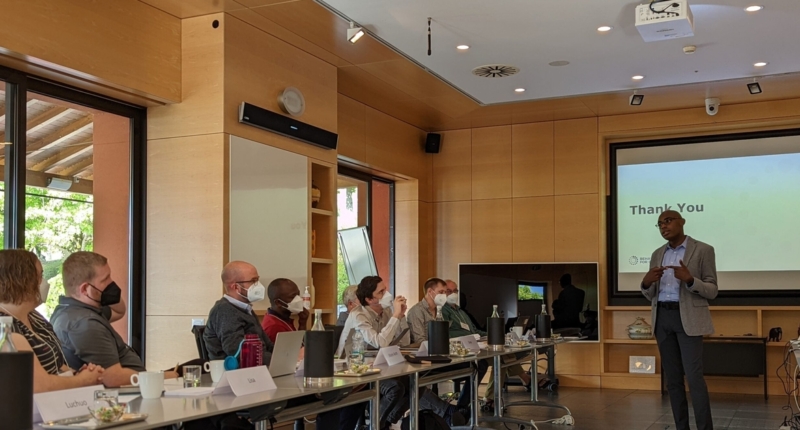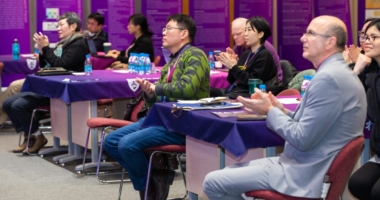The Mercury Project’s approach to research involves bringing together diverse teams and stakeholders for the Bellagio Center convening and broader work. This approach ensures high evidentiary standards and produces useful evidence for relevant stakeholders, as well as providing direct feedback on what kind of evidence is useful. The project teams come from 20 different countries, conducting research in 17 countries and online. Understanding heterogeneity is critical for improving both our theories and their practical relevance, according to social scientists and statisticians. The Mercury Project’s approach provides a program and structure for engagement and collaboration that can help improve scientific evidence and its relevance simultaneously. By creating more opportunities for engagement and collaboration, substantial strides can be made in improving the quality of scientific evidence and its relevance. The diversity of research teams and stakeholders involved in the Mercury Project has shown the benefits of bringing together different perspectives to achieve a common goal.
Improving Evidence and Relevance through the Mercury Project
According to Neil Lewis Jr., the approach taken by the Social Science Research Council’s Mercury Project team can improve the quality of evidence. Rather than providing funding and leaving the research teams to figure out what is helpful or not, the Mercury Project took a different approach. Each research team submitted proposals, and the decision to fund was not the end of the feedback process.
Before starting the projects, the funded teams were brought together at The Rockefeller Foundation’s Bellagio Center for a convening. This gathering involved researchers, methodological experts, representatives from communities that could be impacted by the research, and policymakers who might ultimately use the research. They provided constructive and critical feedback on each research design to ensure the projects met high evidentiary standards and produced useful evidence for relevant stakeholders.
Hearing the perspectives of policymakers was particularly helpful during the convening, according to Lewis Jr. Often, scientists conduct studies, write them up for academic journals, and conclude with a paragraph about what policymakers should do with their findings. However, social scientists with no training or limited experience working with policymakers may not have insight into how the policymaking process works at different levels, rendering their recommendations ineffective. Having policymakers present as the research was being designed allowed for direct feedback about what kind of evidence would (and would not) be useful.
This feedback helped the research teams ensure they were measuring relevant variables, weighing the benefits and costs of different approaches appropriately, and thinking critically about the theoretical and practical significance of their work. Ultimately, this approach improved the quality of the evidence by ensuring the research was relevant to stakeholders and policymakers, making it more likely to be used for the benefit of the broader society.
The Benefits of Diversity in Research Teams
The Mercury Project’s approach to research involved bringing together diverse teams and stakeholders for the Bellagio Center convening and broader work. The project teams come from 20 different countries, conducting research in 17 countries and online. Having such diverse teams provides tremendous insights into factors that are important to consider for the research to be done well and that are essential for understanding whether research generated from one context can be applied to another.
Understanding heterogeneity is critical for improving both our theories and their practical relevance, according to social scientists and statisticians. The Mercury Project convening crystallized these ideas, providing a clear example of the importance of diversity in research teams. For example, one conversation Lewis Jr. had with other researchers, practitioners, and policymakers was about why a health intervention that works in one country might not work in another. The discussion highlighted the structural, cultural, and political processes that affect the effectiveness of health interventions, which are essential to understanding and generating useful theories of change.
The social sciences have been discussing large epistemic and practical problems, and solutions require bringing together researchers, community members, practitioners, and policymakers to think critically about the knowledge they create and its implications for society. The Mercury Project’s approach provides a program and structure for engagement and collaboration that can help improve scientific evidence and its relevance simultaneously.
By creating more opportunities for engagement and collaboration, substantial strides can be made in improving the quality of scientific evidence and its relevance. The diversity of research teams and stakeholders involved in the Mercury Project has shown the benefits of bringing together different perspectives to achieve a common goal.
Don’t miss interesting posts on Famousbio









